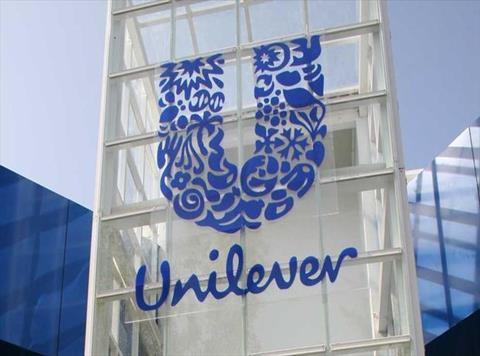
Top story
Unilever has upped it full year growth forecasts as double-digit price hikes drove strong growth in its third quarter despite falling sales volumes.
In the three months to the end of September the consumer giant’s underlying sales growth stepped up to 10.6% from 8.9% over the whole nine month period.
This growth was purely driven by price, which has increased in each of the past seven quarters and now stands at 12.5%.
This pricing had a negative impact on volume, with sales volumes down 1.6% though underlying volume growth improved in four business groups compared to the second quarter.
Beauty & wellbeing grew 6.7%, driven by price with slightly negative volume primarily due to core Skin care and hair care. Personal care underlying sales were up 8.9%, led by increased pricing and a lower volume decline as deodorants returned to volume growth.
Home Care saw sales growth of 13.6% with a volume decline of 3.6%, having taken the highest pricing action given its exposure to input cost increases.
Nutrition grew 11.8% with virtually flat volume due to strong performances in dressings and food solutions. Ice Cream improved underlying sales by 13.2%, driven by double-digit price growth in both in-home and out-of-home, with volumes up 1.0%, helped by a strong summer season in Europe compared to the prior year.
Regionally, developed markets increased by 7.1%, with 9.3% from price and a 2% volume decline. North America grew 8.3%, boosted by strong performances of nutrition and ice cream. Europe delivered 5.4% growth, helped by double-digit growth in ice cream.
Emerging markets grew 13.3% with a 14.9% contribution from price and volume down 1.4%. South Asia continued to grow strongly through both price and volume. Price growth in Latin America increased to 23.2% with volumes contracting by 4.6%. China returned to slightly positive growth, and sales growth in South-East Asia benefitted from lapping the prior year lockdown effect in some markets.
Due to the strong pricing, the group nows expect underlying sales growth for the full year 2022 to be above 8%, with more negative underlying volume growth than in the first nine months.
Its expectation for net material inflation for 2022 is virtually unchanged at around €4.5bn, with €2.5bn in the second half.
Although some commodities have softened from their peaks, Unilever said it expects cost pressure to carry forward into 2023, driven by currency devaluation, higher raw material costs versus beneficial covers in the first half of 2022, and higher supplier processing costs from energy and labour inflation.
It expects another €2bn of inflation in the first half of next year.
However, it said it will continue to protect investment levels. In the second half of 2022, it expects to increase spend in brand and marketing, R&D and capital expenditure. Full year underlying operating margin expectation for 2022 remains at 16%, and it plans to improve margin in 2023 and 2024, through pricing, mix and savings.
CEO Alan Jope commened: “”Unilever has delivered another quarter of growth in challenging macroeconomic conditions. Underlying sales growth improved to 10.6%, led by further increases in pricing with only a limited impact on volume, and we now expect underlying sales growth for the full year 2022 to be above 8%.
“We have delivered growth in each of our five Business Groups, led by a strong performance from our billion+ Euro brands, growing 14% in the quarter. Strong pricing allows us to continue to drive increased investment behind our brands.
“Our organisation is now better structured to deliver consistent growth through a simpler, more category-focused operating model. The full benefits will be realised over time, and we are seeing encouraging early signs of improved accountability and faster decision-making.
“The global macroeconomic outlook remains mixed, and we expect the challenges of high inflation to persist in 2023. The delivery of consistent growth remains our first priority.”
Unilever shares have dropped 0.3% this morning back to 3,857p.
Morning update
The world’s largest brewer AB InBev delivered its best quarterly volume performance this year in the third quarter, driven by “accelerated digital transformation” and continued consumer demand its key brands.
Volume momentum accelerated in the quarter, with growth of 3.7% even in the context of the “ongoing dynamic operating environment”.
Top-line grew by 12.1% with 8% revenue per hl growth, driven by revenue management initiatives and continued premiumization across most of our markets.
It saw a 12.7% increase in combined revenues of global brands, Budweiser, Stella Artois and Corona, outside of their respective home markets in the quarter.
Approximately 57% of revenues now come through B2B digital platforms with the monthly active user base of BEES reaching 3.1 million users as of 30 September 2022.
EBITDA increased by 6.5% as top-line growth was partially offset by anticipated transactional FX and commodity cost headwinds and increased sales and marketing investments in its brands.
As a result, it expects full year EBITDA to grow between 6-8% and revenue to grow ahead of EBITDA from a combination of volume and price. Its medium-term outlook, which aims to deliver EBITDA growth of 4-8%, remains unchanged.
Michel Doukeris, CEO, AB InBev, commented: “We delivered broad-based volume growth of 3.7% this quarter resulting in an accelerated increase in revenue of 12.1%. We continue to see strong consumer demand for our portfolio and a resilient beer category as we navigate the dynamic operating environment. As a result of our performance and continued momentum, we are raising the bottom-end of our FY22 EBITDA outlook.”
Drinks supplier and distributer C&C Group has posted a strong rebound in revenues and profits in its first half as more normal trading resumes post-Covid.
Net revenue increased 37.4% on a reported basis or 35.6% on a constant currency basis to €903m, reflecting the resumption of trading to pre-COVID-19 levels.
Sales growth was driven by volume growth of 11% and price/mix growth of 25% in the period.
Operating profit of the group, before exceptional items, for the six-month period to 31 August 2022 was €54.9m compared to €16m in the prior period.
Its Great Britain division delivered €752.3m of net revenue in the period, an increase of 36.6% compared to the prior year, driven by, strong growth in distribution volumes and a full six months of unrestricted trading. As a result, operating profit increased to €35.9m, compared with €7.2m, driven by volume and pricing growth alongside a better channel mix.
Its business in Ireland saw net revenue increase by 30.5% to €150.7m, driven by the re-opening of the on-trade. Ireland’s operating profit increased by 128.9% to €19m with margins growing to 12.6% from 7.2% last year due to a better channel mix as a consequence of the removal of trade restrictions, alongside the introduction of Minimum Unit Pricing, despite inflationary cost pressures being faced by the business.
The group said macro-economic and consumer environment remains “difficult” with net revenues for September 2022 down 5% compared to the same period in 2021.
However, its near-term trading focus is on ensuring the highest standards of service and stock availability to our customers and consumers as it prepares for the first unrestricted Christmas trading period for three years and the upcoming FIFA World Cup.
David Forde, C&C Group CEO said: “We are pleased with the Group’s resilient and progressed H1 performance, where – despite the challenging economic backdrop – we have delivered significant revenue and operating profit growth. Encouragingly, our profit growth has been coupled with margin expansion as the business returns to a more normalised product/price and channel mix.
“We are delivering on a number of key priorities outlined at our recent Capital Markets Day; achieving our guided medium-term targets for distribution margins and target leverage. Further, we increased brand investment, grew our share of premium beer, increased revenue per customer, grew our agency brands and also implemented a number of our sustainability initiatives.
“FY2023 H2 will provide our first unrestricted Christmas trading period for three years, in addition to the upcoming FIFA World Cup, therefore our focus is on ensuring the highest standards of service and stock availability over this period and beyond. However, despite these positive tailwinds, the outlook for H2 is challenging with inflationary pressures on our own margins as well as those of our customers, and the cost of living pressures on the consumer environment in the near-term.
“The Group’s priority continues to be on executing our strategy; enhancing efficiencies to insulate the business from inflationary pressures where possible whilst progressing our sustainability ambitions. This coupled with the strength of the C&C model and its combination of brand power and unique last mile distribution, alongside its robust balance sheet, puts the Group in a position of relative competitive strength.”
Meal delivery business HelloFresh delivered “substantial” revenue growth in the third quarter, with sales up 31.4 % on euro basis, and 17.9 % on a constant currency basis.
The increase in revenue is mainly attributable to a year-on-year increase in active customers by 8.2 %, which reached 7.51 m, compared to 6.94 m in the same quarter of the previous year. As a result to saw a corresponding increase in number of orders, while it also saw an increase in average order value, driven by the take-up of add-ons due to the continued roll-out of HelloFresh Market, increased take-up of surcharge products per order, and year-on-year price increases in several markets, and the ongoing appreciation of the US dollar.
Contribution margin (excluding share-based compensation expenses) as a percentage of revenue in the third quarter 2022 increased to 24.5 % compared to 22.5 % in the third quarter 2021.
This improvement is primarily driven by continued productivity improvements in production despite meaningful inflationary trends across most categories.
Marketing expenses as percentage of revenue increased by 3.0 pp to 17.8% in this quarter compared to 14.8 % in the same quarter of the previous year due to a more normalized marketing spending in Q3 2022.
Adjusted EBITDA of €71.8m in Q3 2022 compared to €79.8m in the prior year quarter, reflected this higher marketing spend.
Finally, English wine player Gusbourne has completed its 2022 harvest which “marks a vintage of great potential”.
The 2022 growing season was “nearly perfect”, dominated by warm, dry weather in which the vineyards thrived, meaning that the “fruit quality and quantity was superb”.
CEO Charlie Holland commented: “2022 is a vintage we anticipate will be amongst the best, ranked alongside 2014, 2018 and 2020. We harvested one of our biggest yields to date, which is crucially important, but it is the high quality of the fruit which particularly excites us.”
“This has been a fantastic year for Gusbourne, and our success is testament to the team’s unwavering commitment to detail and excellence. I am thrilled to see a wide range of our wines recognised by different judges at a number of different awards this year. Given that the awarded wines are spread across several different vintages, this also highlights the consistent excellence of our winemaking.”
On the markets this morning, the FTSE 100 is up 0.4% to 7,082.6pts.
Risers so far this morning include PayPoint, up 2.8% to 594p, THG, up 5.8% to 63.5p and Virgin Wines, up 6% to 53p.
Fallers include Glanbia, down 7.2% to €11.17, Naked Wines, down 1.9% to 110.9p and Reckitt Benckiser, down 1.8% to 5,618p.
Yesterday in the City
The FTSE 100 ended Wednesday up 0.6% at 7,056.1pts.
Parsley Box collapsed 45% to just 2.2p as it revealed it is considering delisting from the London Stock Exchange as it weighs up its options to raise more cash.
Other fallers included Reckitt Benckiser, down 4.1% to 5,722p despite having grown 7.4% to £3.7bn in the third quarter as it hiked prices to deal with the inflationary environment and gained benefits from weakness in sterling.
Also down were Coca-Cola HBC, down 2.5% to 1,904p, Unilever, down 1.5% to 3,869p and Diageo, down 1.3% to 3,581.5p.
The day’s risers included THG, up another 9.5% to 60p, Glanbia, up 7.3% to €12.04, Devro, up 4.1% to 171.6p, McBride, up 3.9% to 23.9p and C&C Group, up 3.7% to 165.5p.







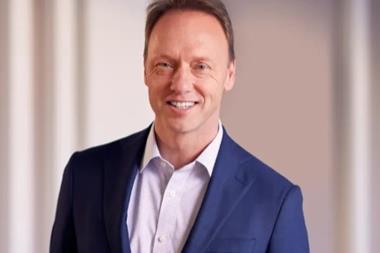
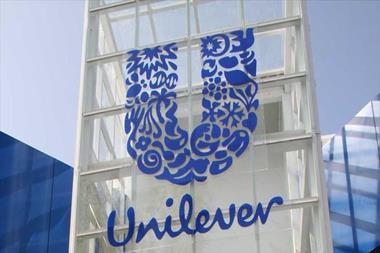
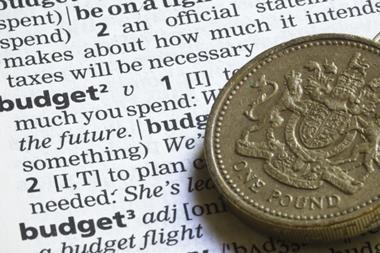
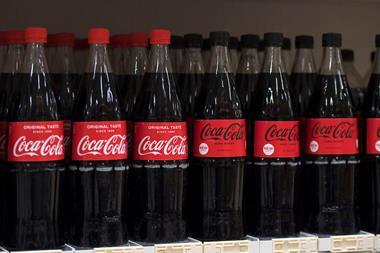
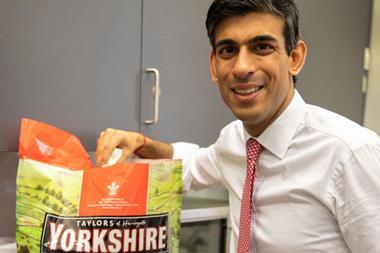
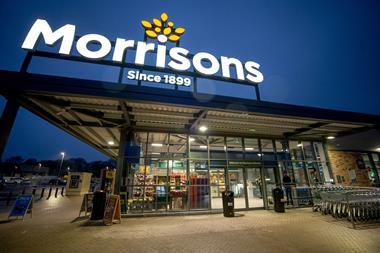






No comments yet